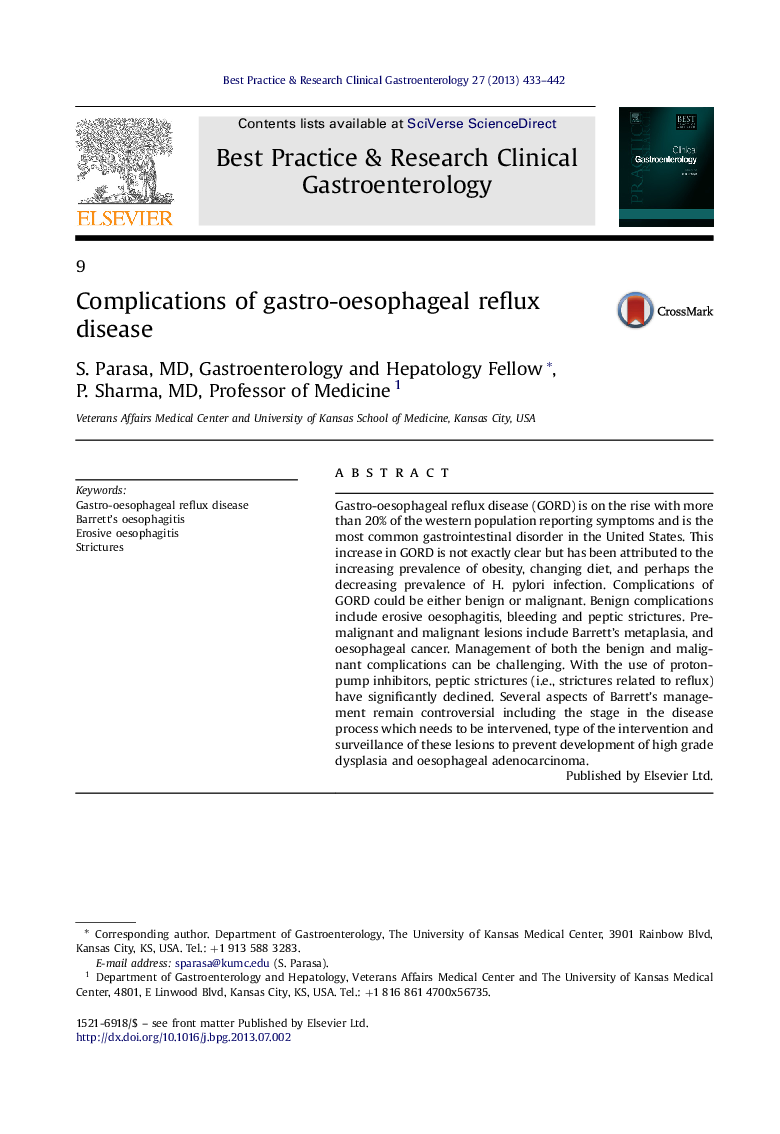| Article ID | Journal | Published Year | Pages | File Type |
|---|---|---|---|---|
| 3254274 | Best Practice & Research Clinical Gastroenterology | 2013 | 10 Pages |
Gastro-oesophageal reflux disease (GORD) is on the rise with more than 20% of the western population reporting symptoms and is the most common gastrointestinal disorder in the United States. This increase in GORD is not exactly clear but has been attributed to the increasing prevalence of obesity, changing diet, and perhaps the decreasing prevalence of H. pylori infection. Complications of GORD could be either benign or malignant. Benign complications include erosive oesophagitis, bleeding and peptic strictures. Premalignant and malignant lesions include Barrett's metaplasia, and oesophageal cancer. Management of both the benign and malignant complications can be challenging. With the use of proton-pump inhibitors, peptic strictures (i.e., strictures related to reflux) have significantly declined. Several aspects of Barrett's management remain controversial including the stage in the disease process which needs to be intervened, type of the intervention and surveillance of these lesions to prevent development of high grade dysplasia and oesophageal adenocarcinoma.
